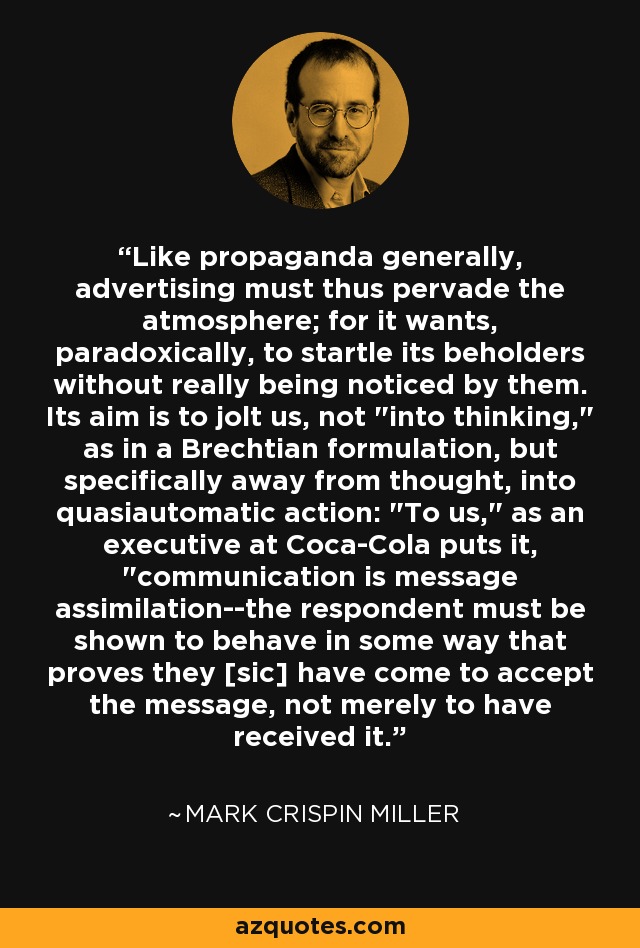-
Like propaganda generally, advertising must thus pervade the atmosphere; for it wants, paradoxically, to startle its beholders without really being noticed by them. Its aim is to jolt us, not "into thinking," as in a Brechtian formulation, but specifically away from thought, into quasiautomatic action: "To us," as an executive at Coca-Cola puts it, "communication is message assimilation--the respondent must be shown to behave in some way that proves they [sic] have come to accept the message, not merely to have received it.
Topics
Cite this Page: Citation







